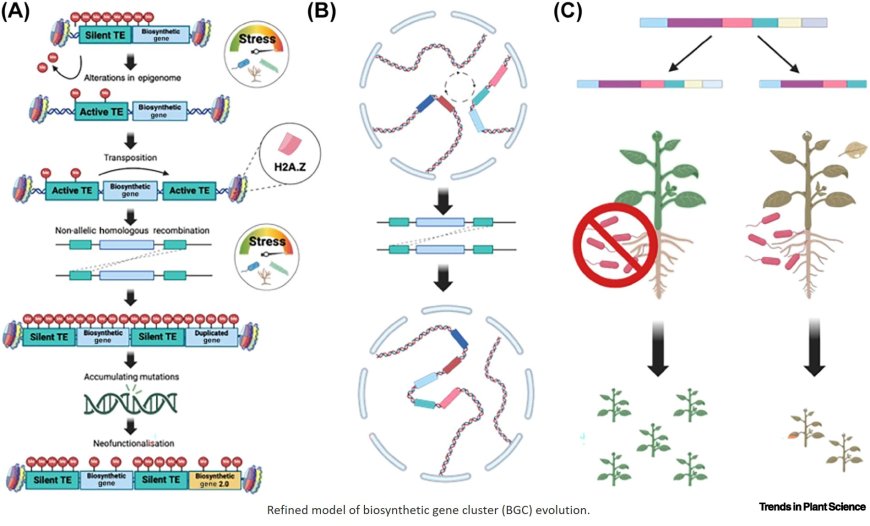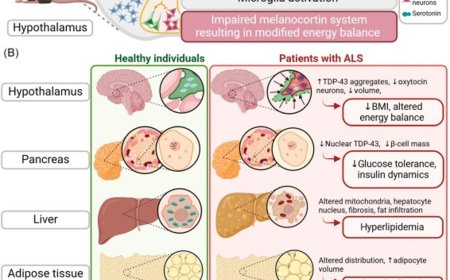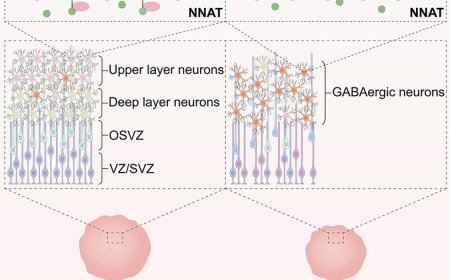Biosynthetic gene clusters in plants

The discovery of biosynthetic gene clusters (BGCs) in plants has stimulated crossdisciplinary research into their ecological significance, regulation, and evolution.
BGCs reside in dynamic genome regions enriched with transposons, histone variant H2A.Z, and histone modification H3K27me3. These configurations enable tightly coordinated stress- and tissue-dependent expression, while also facilitating genomic plasticity and rapid adaptation to stressful environments.
Negative selection against deleterious pathway fragmentation, combined with positive selection for beneficial functions in defence and ecological interactions, preserves genetic linkage and BGC integrity.
Future research into the molecular regulation and ecological significance of BGCs will shed light on the catalytic influences of stress-inducible epigenetic changes and transposons in the evolution of plant secondary metabolism.
https://www.cell.com/trends/plant-science/fulltext/S1360-1385(24)00241-3












